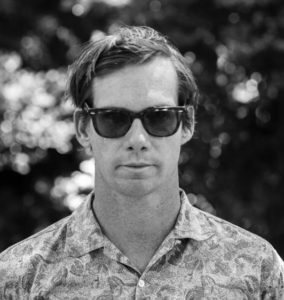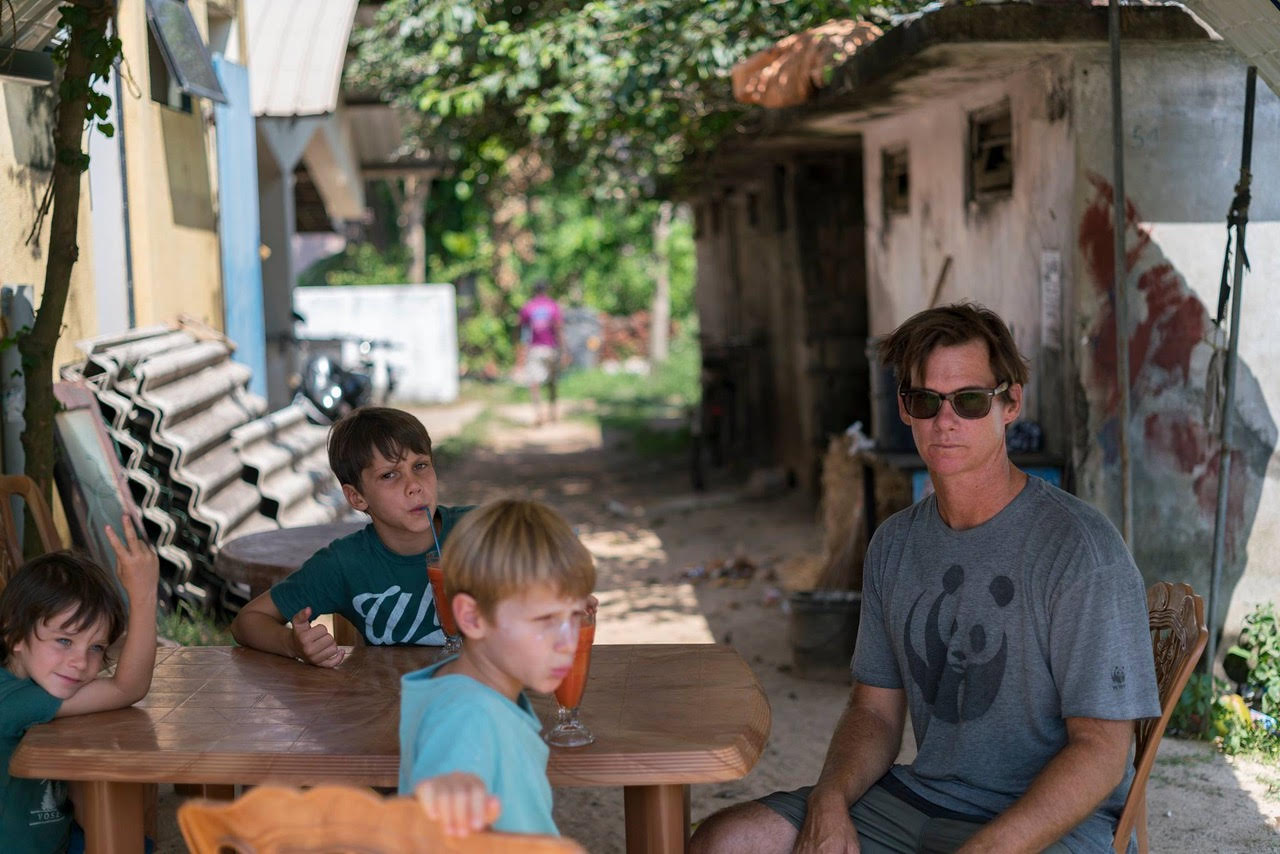Bruce Buttery has worked in the realm of independent film since 1998. He has been a cameraman, designer, editor, producer and director of photography. He’s worked on dozens of projects, including as the director and creative force behind the short film Sea Change, which is a beautifully shot documentary that chronicles South African surfer, entrepreneur and eco-warrior, John McCarthy, and his realization that his passion for surfing was not sustainable for the ocean he feels a deep connection to.

Director of Sea Change, Bruce Buttery.
READ OUR Q&A WITH JOHN MCCARTHY
Plastic Oceans International is proud to present this story about the search for sustainability that John embarked upon. It holds lessons for the larger world in regards to what we put into the Ocean and what we receive from it. We recently sat down with Bruce and asked him about his life and Sea Change:
PO: How long have you been a filmmaker and how did you get your start?
BB: I started in the broadcast world in the late 90s working on sport productions and I have been working in the film/tv industry ever since.
PO: What film or films inspired you to be a filmmaker, or inspire your work today?
BB: One of the first films that really inspired me was Baraka, directed by Ron Fricke. It’s still a classic today. I also love Darren Aronofsky’s work Pi, Requiem for a Dream and One Strange Rock. He’s a master of the craft. There is such amazing talent out there at the moment. I am currently really interested in the small one to two-man crews telling real stories.
PO: What makes film a good media for messages on sustainability, education, and the environment?
BB: Film is powerful, it has the power to change people’s perceptions and mindsets. Film can capture a moment, zoom into something and make us look at ourselves and our world more closely. Film expands our imaginations and through storytelling and documentary making we are forced to learn and grow as humans.
PO:What have you learned over the years, through filmmaking and travel, about sustainability and the environment?
BB: Telling people’s stories through film helps us understand each other and that we are all connected. The more I travel the more I am aware that respect for everyone and every living thing is what sustainability on this planet is about.
PO: What drew you to John McCarthy as a subject for a film?
BB: He’s a good man, doing good work for the planet. I guess that’s what drew me in.
He’s a surfer and I am a surfer and there is definitely a communion among surfers.
PO: Tell us a bit about the process of making Sea Change. Any challenges or rewards in particular?
BB: Sea Change made me very aware of my complete obsession with the ocean. It made me realize how the ocean is a big part of who I am. There are always challenges working in water but the rewards of seeing these locations, capturing what we did was an insane privilege.
PO: What are some of the challenges of being an independent filmmaker?
BB: The hours of time it takes to be a filmmaker can be overwhelming, you really do give everything when you work on a project and it shows in the end result. Finding funding for projects can also be a hard hustle but I suppose if you believe in something enough it’s all worth it!
PO: What is the best part of your job?
BB: I enjoy telling people’s stories. Everybody has a story so there is endless subject matter and adventures to be had in film making.

Bruce Buttery and his children.
PO: What advice do you have for those interested in a career in filmmaking?
BB: Find a story that resonates with you, something that you are really interested in, skip film school buy a camera, start filming and learn as you go from the thousands of people sharing knowledge on the internet. It’s pretty much a time of free knowledge out there, so tap into it.
PO: What personal message on sustainability and the environment do you have for our readers?
BB: Our choices matter!!! It fascinates me how big corporations like Coca-Cola can produce 110 billion single use plastic bottles and still be in operation. It seems there are loopholes for all the big corporations to get away with murder. There are so many sustainable options, but the system of capitalism is such a beast and until there is another system that forces corporations to have a conscience, we are doomed. So don’t buy plastic, just Don’t!!! Use water filters and reusable bottles, put pressure on the big companies until they become sustainable.
PO: What’s next for Bruce Buttery? Any upcoming projects or life events you can share with us?
I am currently in production with a food story from my home town airing early October. (I will keep you updated on this.) I am also working on a new film called Sons of the Soil, which is a film about three young boys from the next generation helping our planet. They take us on a journey of discovery to find solutions to conserve, protect, and make nature a sanctum far greater than any man made church. It is a very cinematic piece with some of my favourite surfing destinations and natural locations around our world.
PO: Any questions we haven’t asked you that you’d like to answer?
My wife and I currently run a film production company called Panga Films in Durban, South Africa. We do stories across Africa for many international broadcasters. I have worked across all mediums of filmmaking but my true passion is for real stories.
# # #
PLEASE DONATE TO PLASTIC OCEANS
